Are you wondering if magnets work underwater and how their magnetic strength holds up when submerged? Whether you’re into fishing magnets, designing underwater sensors, or exploring marine applications, understanding how water affects magnets is crucial. In this post, we’ll break down the science behind magnetic fields in aquatic environments and share practical insights on using waterproof magnets effectively. If you want to know how saltwater, temperature, and pressure impact magnet performance—and which materials stand up best underwater—you’re in the right place. Let’s dive straight into the magnetic world beneath the waves!
The Basics of Magnetism
Magnetism is a natural force produced by moving electric charges, which creates an invisible field that can attract or repel certain materials like iron. Simply put, magnetism is the reason magnets can stick to your fridge or make compasses point north.
There are two main types of magnets:
- Permanent magnets: These hold their magnetic properties all the time. Common examples include fridge magnets and rare-earth magnets like neodymium.
- Electromagnets: These only become magnetic when electricity flows through them. You see these in devices like electric motors and MRI machines.
Magnets generate magnetic fields by aligning billions of tiny magnetic domains inside materials. In permanent magnets, the domains stay aligned naturally, while in electromagnets, electric current creates the magnetic field by producing moving charges.
Understanding these basics sets the stage for exploring how magnets behave underwater and whether water affects their magnetic power.
Do Magnets Work Underwater Science Behind It

Magnets do work underwater because magnetic fields pass through water without being blocked or significantly altered. Water itself is not magnetic, so it doesn’t stop or weaken a magnet’s pull. However, the electrical conductivity of water can affect how magnetic fields behave, especially in saltwater.
Magnetic Fields and Water
- Water does not block magnetic fields: Magnetic fields travel easily through water, whether it’s fresh or saltwater.
- Water’s conductivity matters: Saltwater conducts electricity better than freshwater. This conductivity can create small electric currents when magnetic fields change, which may slightly affect how the field moves but doesn’t stop the magnet from working.
Freshwater vs Saltwater Effects
| Factor | Freshwater | Saltwater |
|---|---|---|
| Electrical Conductivity | Low | High |
| Impact on Magnetism | Minimal | Slight magnetic field distortion possible due to induced currents |
| Corrosion Risk | Lower | Higher due to salt content |
Scientific Observations
Experiments show magnets maintain their strength underwater, both in lakes and oceans. The main difference comes from corrosion risks and the environment around the magnet, not from water reducing the magnetic field itself. That’s why magnets sealed in waterproof coatings still function well underwater whether in freshwater or seawater.
Water is slightly repelled by a strong magnet,like neodymium magnet , you can test this by yourself. Here is a video from NurdRage showing you how to demonstrate this.
Factors Influencing Magnet Performance Underwater
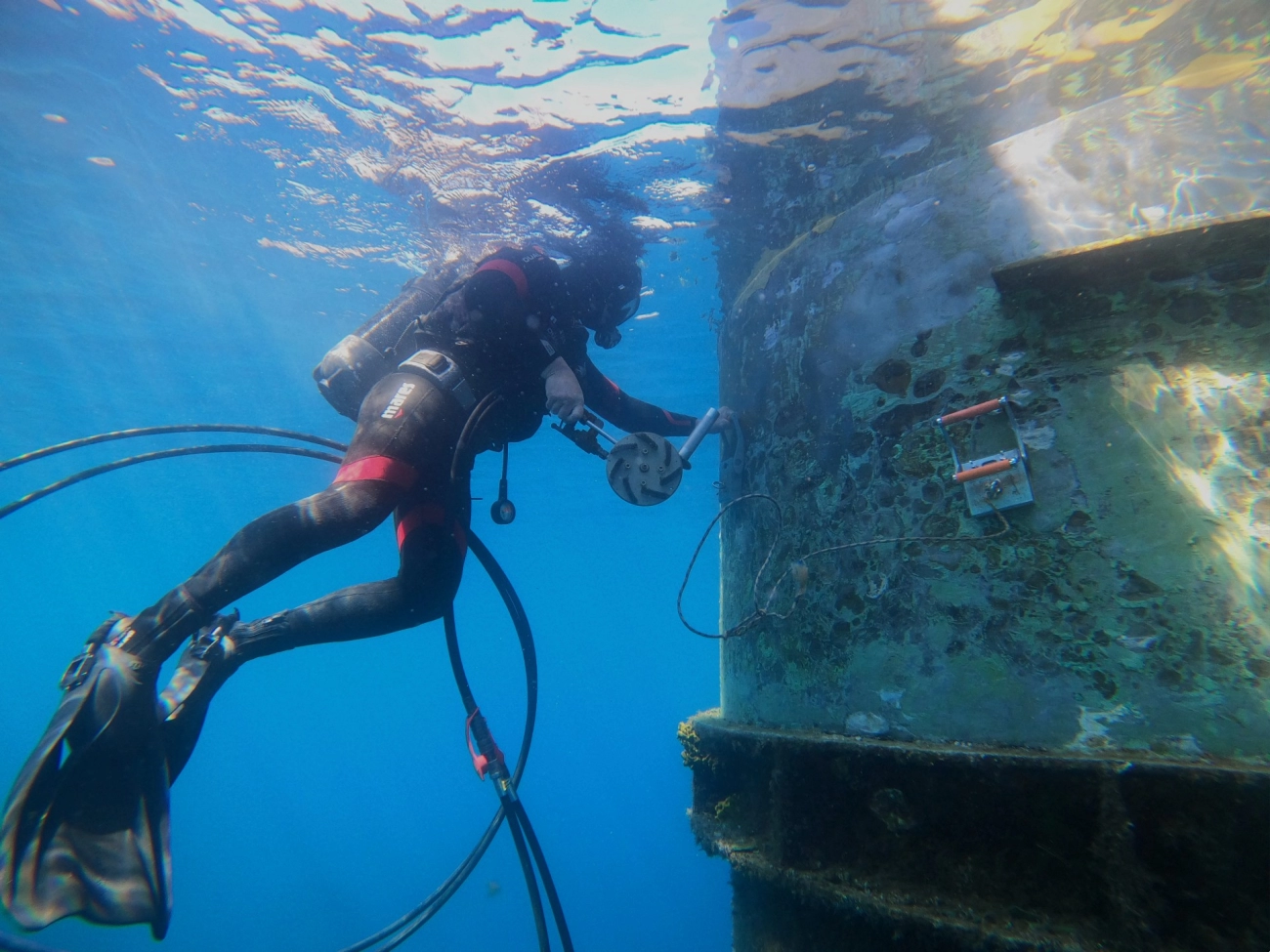
Several factors affect how well magnets work underwater.
Water Temperature
Magnetic strength can change slightly with temperature. Colder water might make magnets a bit stronger, while warmer water can reduce their magnetic force. However, these changes are usually minor unless the temperature swings are extreme.
Corrosion and Material Degradation
Rust and corrosion are major concerns for magnets underwater, especially steel parts or magnets not designed for wet conditions. Saltwater speeds up corrosion, which weakens magnets over time. That’s why magnet encapsulation or waterproof coatings are essential to protect magnets from moisture and prevent rust.
Minerals and Chemicals in Water
Water isn’t just H2O; it contains minerals like salt, iron, and other chemicals. Saltwater, rich in sodium chloride, can be harsh on magnets, accelerating corrosion and material wear. Freshwater is less corrosive but still contains minerals that may affect magnet performance slightly.
Pressure at Depth
Underwater pressure increases dramatically with depth. High pressure can physically stress magnet casings and coatings, potentially causing cracks or leaks that lead to damage. Deep-sea applications need magnets and protective layers built to withstand these pressures without compromising magnetic strength.
By understanding these factors, you can choose and maintain magnets that perform reliably in your specific underwater environment.
Types of Magnets Best Suited for Underwater Use
When it comes to magnets working underwater, choosing the right type is key. Some magnetic materials handle water exposure better than others, making them ideal for marine environments.
Magnetic Materials Resistant to Water Damage
Neodymium magnets are super strong but can corrode quickly if not protected because they contain iron.
Ferrite magnets are more resistant to corrosion and cheaper but weaker in strength.
Alnico magnets stand up well to water and temperature changes but aren’t as strong as neodymium.
For underwater use, neodymium magnets often get sealed or coated to prevent rust since their strength is a big advantage.
Coating and Encapsulation Technologies
NBAEM, a leading magnetic materials supplier, offers specialized coatings that protect magnets underwater. These include:
- Epoxy coatings for waterproofing
- Nickel or zinc plating to block corrosion
- Full encapsulation in plastic or rubber shells
These treatments help magnets hold up to salty seawater, freshwater, and harsh underwater conditions.
Recommendations for Specific Applications
- For fishing magnets and treasure hunting, coated neodymium magnets work best because you want the strongest pull with some corrosion protection.
- In marine sensors and ship parts, ferrite magnets or encapsulated neodymium magnets provide a good balance of strength and durability.
- For deep-sea equipment, Alnico magnets with proper sealing are often preferred thanks to their temperature resistance and stability under pressure.
Choosing the right magnet and protective treatment depends on the water type, pressure, and expected wear. This ensures your magnets keep working underwater without losing strength or falling apart.
Practical Applications of Magnets Underwater
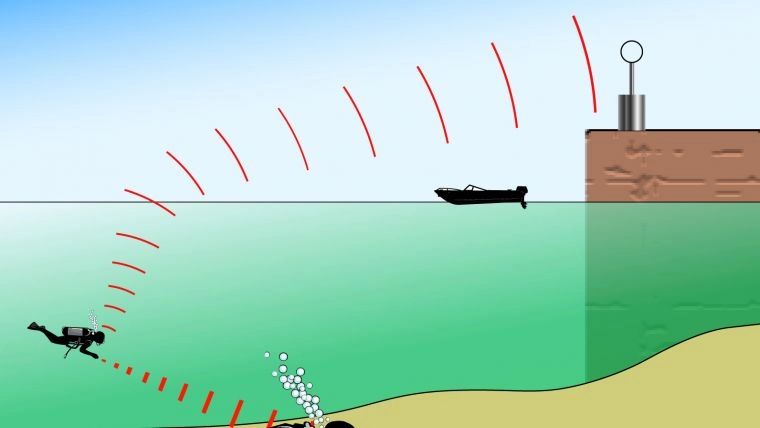
Magnets play an important role underwater across many fields. In marine science, underwater sensors and instruments often rely on magnets for data collection, communication, and sealing parts without electrical connections. These sensors help monitor water quality, ocean currents, and marine life.
For hobbyists and professionals alike, fishing magnets and treasure hunting are popular uses. Strong neodymium magnets attract metal objects lost underwater, making it easier to recover tools, coins, or relics from lakes, rivers, and oceans.
In the marine industry, magnets are integrated into ship components, anchors, and sensor systems. Magnetic couplings and seals reduce wear and prevent leaks, while magnetic sensors assist with navigation and detecting underwater structures. Industries benefit from magnets that can withstand harsh saltwater environments.
Innovations in underwater magnetic technology keep improving. New coatings and encapsulation methods protect magnets from corrosion, while smarter sensor designs increase accuracy and reliability. These advances open up more applications from deep-sea exploration to environmental monitoring.
Tips for Maintaining Magnets Used Underwater
Keeping magnets in good shape underwater takes some care, especially since water—especially saltwater—can cause corrosion and weaken magnetic strength.
Preventing Corrosion and Maintaining Strength
- Use waterproof coatings or encapsulation to protect magnets from direct exposure to water. This is crucial for materials like neodymium magnets that can corrode easily.
- Choose magnets made from corrosion-resistant materials like ferrite or coated Neodymium to help maintain strength.
- Rinse magnets with fresh water after use in saltwater to remove salt deposits that speed up rust and damage.
Proper Storage and Handling After Water Exposure
- Dry magnets completely before storing them to avoid lingering moisture causing corrosion.
- Store magnets in a dry, cool place away from humidity and extreme temperatures.
- Avoid dropping or striking magnets as physical damage can weaken their magnetic field.
Best Practices to Extend Magnet Lifespan Underwater
- Regularly inspect magnets for signs of rust or coating damage and address issues quickly.
- Use magnet encasements designed for marine environments for long-term underwater applications.
- Consider the type of water (freshwater vs saltwater) and adjust maintenance accordingly since saltwater is harsher.
Frequently Asked Questions About Magnets Underwater
Can magnets lose strength underwater?
Magnets generally do not lose their magnetic strength simply by being underwater. Water itself does not weaken a magnet’s magnetic field. However, long-term exposure to water, especially saltwater, can cause corrosion or rust in some magnets, which may indirectly affect their performance.
Are all magnets waterproof?
No, not all magnets are waterproof. Many magnets, like some neodymium types, are prone to rust if uncoated. Waterproof magnets usually have special coatings or are encapsulated to protect against moisture and corrosion, making them suitable for underwater use.
How does seawater affect magnets differently than freshwater?
Seawater is more corrosive due to its high salt content and minerals. This can cause faster degradation and rusting in magnets that are not properly protected. Freshwater is less harsh but can still lead to corrosion over time, especially if minerals or impurities are present.
How to choose the right magnet for underwater projects?
- Look for corrosion-resistant materials like coated neodymium, ferrite, or Alnico magnets.
- Consider magnets with waterproof encapsulation or special coatings.
- Match the magnet strength and size to your specific application, whether for sensors, fishing, or marine equipment.
- Take into account the water type (fresh or saltwater) and the depth to ensure durability.
For more on different magnet types and strengths, check out our list of magnets by strength.

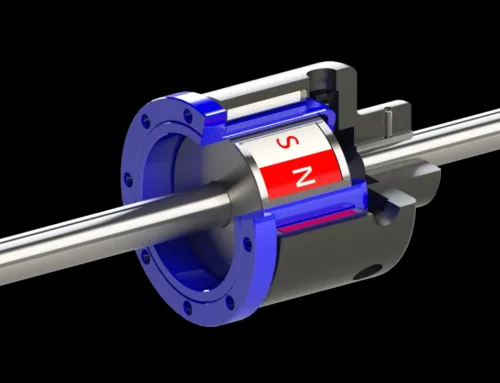
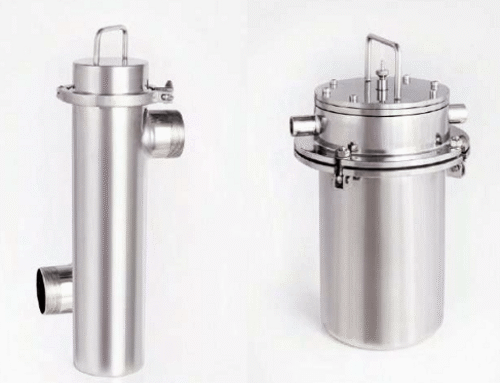
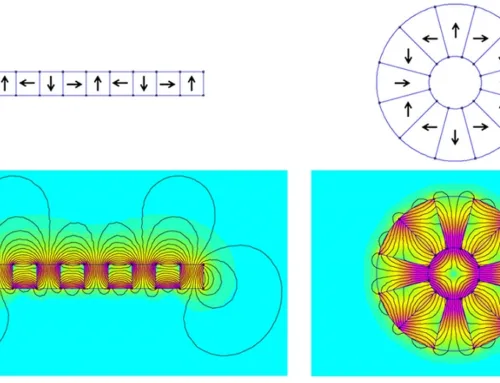

Leave A Comment